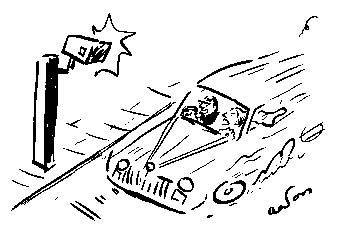I really wanted to like When Romeo Met Juliet (BBC2, Friday). Television loves new clichés, and since the success of Gareth Malone in The Choir it has decided that getting a bunch of people who wouldn’t know art from a hole in the ground and persuading them to do something artistic makes for great viewing. Up to a point. It also proves that people will do almost anything — even learn to sing, or memorise a script — if they might get on to television. This remains true, even though there are now something like 90 channels. As a friend of mine put it, rates on some of these are so low that you could advertise your missing cat, except that nobody would see it.
Clichés have their own internal clichés, known to the pretentious as ‘the grammar of television’. There have to be cynics, who have no time for whatever it is they’re being asked to do. As one boy put it this week, ‘I ’ate Shakespeare.’ They go on to become the most enthusiastic participants. There is the discovery of a hitherto hidden star: ‘I have seen worse performances on the professional stage.’ They will get the lead roles and make everyone cheer. There will be disasters along the way; someone has flu, or their Mum won’t let them give up the Saturday job. And at the end, in this case episode three, the show must be a triumph with much whooping and blissful tears running down the cheeks of people who didn’t know they had it in them.
Trouble is that a school production of Romeo and Juliet is not the most thrillingly original notion on which to base three hours of television. It has been performed in schools before, sometimes very well. The idea of casting the Montagues from a city-centre Coventry comp and the Capulets from a suburban RC school was neat enough, and the guest thesp Adrian Lester was a fabulous role model for any budding actor, never mind a black one. (And so was his wife, the magnificently monickered Lolita Chakrabarti, with the Catholic kids.)
Paul Roseby, the artistic director of the National Youth Theatre, came out with suitably luvvie remarks, such as: ‘I want the speed and the energy of skateboard ramps!’ Eh? In a fortnight we’re due for a slightly better than average school production of Shakespeare. I think Coronation Street might win that slot.
There has been some whipped-up controversy about Horrible Histories (CBBC, everywhere). This is a sort of sketch show based on the children’s books, except that where the books make a rudimentary attempt to teach history as a series of interconnected events, the television show is basically gags, chiefly about defecation, gluttony, murder and torture. The sketches are acted out by comedians, and every now and then a little cartoon character pops up with a placard saying something like, ‘Henry VIII really did this!’
It’s quite amusing, though whether it will pique an interest in the subject, or — as some say — merely encourage children to learn more about defecation, gluttony, murder and torture, we cannot know. However, as an educational tool I suspect it is roughly as useful as Armstrong and Miller’s jive-talking RAF pilots for teaching the second world war.
Someone else who’s had stick is Jonathan Dimbleby, whose African Journey began on BBC2 on Sunday. The criticism is that he’s too upbeat, too ready to gloss over starvation, drought, tyranny and war. In fact, he seemed eager to add balancing footnotes, so that in Mali, a country with an annual growth figure that would make our politicians weep with joy, he pointed out that they were still keen on polygamy, female circumcision, and keeping women underfoot. Yet some African countries are clearly doing very well indeed, and that’s worth pointing out too. There are millions of people getting along just fine, without any help from the UN or even Bob Geldof. Many children don’t have rickets, and don’t feel the need to gaze piteously into the camera. Why, lots of them didn’t even have flies buzzing round their heads!
The programme did have a slightly old-fashioned air, as if it had been made a couple of decades ago. There was Jonathan doing his pieces to camera, the traditional crowded market, or a crowded train or on a crowded boat. We visited the largest mud building in the world, and the richest man in Africa. Dimbleby wasn’t afraid to make a fool of himself, grinding mud with his feet, or hitting a golf ball into the road while playing with the Ashanti king, who used to be a personnel manager in Brent.
After a while I realised what was going on: the whole show was channelling the old Tonight programme — Whicker’s World is restored to us!





Comments